The Urgent Need for POCSO Training: Protecting Children Starts with Adult Awareness
Child safety is a legal, moral, and social responsibility. With children being subjected to many threats online and offline, POCSO training (Protection of Children from Sexual Offences Act, 2012) has emerged to assist adults in their duty of care as parents, teachers or school staff and caregiver.
POCSO training is far more than being necessary for compliance with the law. Child safety training can provide adults with the ability to understand child sexual abuse, in order to help them to detect, prevent and appropriately respond to it.
What is POCSO
The Protection of Children from Sexual Offences (POCSO) Act was enacted in December 2012 in India as a national legislation to protect all children under the age of 18 years from sexual assault, sexual harassment and pornography.
The Act gives children a greater definition of sexual abuse, it allows for child friendly processes to report it and for evidence to be gathered, and it also legally obligates every adult to report a suspected case of abuse.
But understanding the law is only half the battle. The next step is to turn this understanding into vigilance in your everyday lives, and that is where POCSO training for adults becomes necessary.
Why do we need POCSO Training?
Abuse Is More Common Than We Realize
Child sexual abuse goes dangerously underreported. Depending on the study and government report you review, a significant percentage of children in India experience some form of sexual abuse before they are 18. Often the abuser is not the monster in the closet, but someone that the child, and society, trusts – a family member, friend, teacher, caregiver or neighbor.
The reality is that most adults will have a hard time recognizing even the most obvious signs of abuse. POCSO Child Protection training provides people with child behavior and physical signs of abuse are relatively quick and easy to identify, to help us intervene at the earliest possible moment.
It Gives Adults the Tools To Act
Most people have no doubt frozen on many occasions when they have been in a position to act, even if they believe a child may in fact be facing abuse or neglect – usually because of a fear of being wrong, not knowing what to do or simply not knowing what the law requires of them.
POCSO training provides knowledge on a few elements.
- It assists in clarifying the process of reporting abuse
- Outlines the outcomes of not reporting abuse (Section 21 of the Act)
- Provides information on how adults can support a child immediately without creating additional trauma for the child
- POCSO training changes passive bystanders become informed protectors.
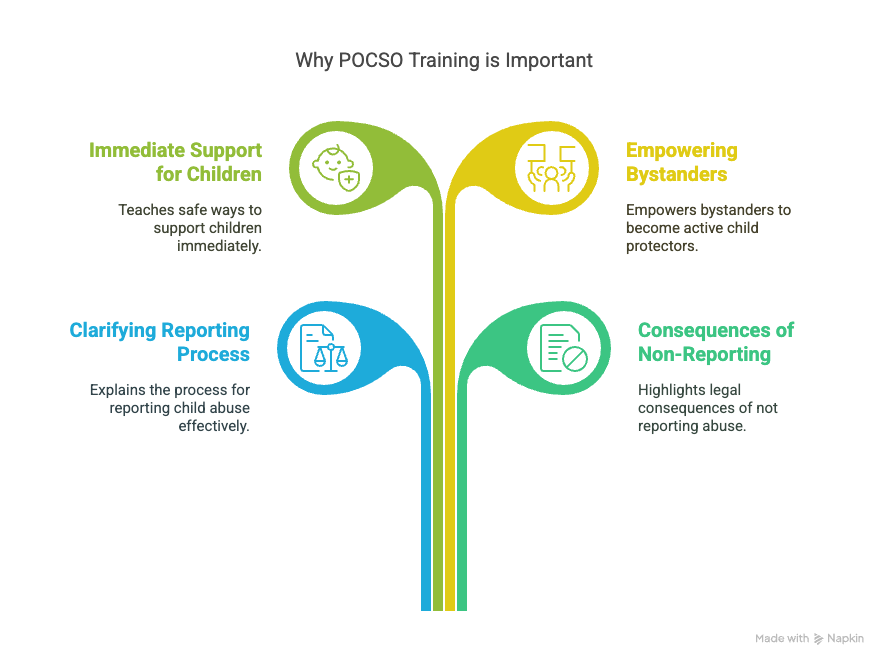
Main Benefits of POCSO Training for Parents, Educators & Caregivers
Legal Literacy & Compliance
POCSO training provides education on the duty of mandatory reporting to adults. POCSO training explains legal vocabulary, the process and penalties, and empowers adults to navigate the procedure with confidence. For example, many do not understand that:
- Not reporting actual or suspected knowledge of a case can impose imprisonment
- The identity of the child is to be protected at all times
- False accusations carry legal baggage too
- Understanding legislation not only prevents unlawful acts but also protects a child’s rights.
Safe & Inclusive Spaces
If the child feels safe and listened to in the environment, they are more likely to report actual or unsafe behaviors. With trained adults, children can:
- Establish open communication.
- Have a candid discussion, without fear or shame
- Be on the lookout for grooming behaviors and unsafe interactions
- POCSO-compliant environments are safer by design, be it a classroom, a tuition centre, sports academy or someone else’s home.
Educational Responses to Proactive, Preventative Practices
POCSO does not wait for abuse to take place before acting. The training can facilitate adults taking preventative approaches, like:
- Age-appropriate sex education and conversations about body safety
- Teaching children consent and setting personal boundaries
- Setting codified expectations or manifestos for staff,
Dealing with Cultural Taboos And Misunderstanding
One of the challenges in addressing child sexual abuse in India is the silences and prejudices that permeate. Many families, schools and institutions decide to stay silent due to:
- Fear of social shame,
- Misguided sense of family honor,
- Distrust of legal systems
Hopefully, we can help disrupt these damaging norms through some of the child protection training that both schools and institutions receive under POCSO:
- To normalize conversation around body safety and abuse,
- Encourage child-centered policy-making within institutions,
- Continue to dispel myths (“not all boys get abused”, “it only happens in broken families” etc.).
A cultural shift is essential if we want to create a culture of child welfare.
How POCSO Training Benefits Children
The training is for adults but the impact on children is considerable. Adults that go through POCSO training, gain knowledge and information that allows for them to:
- Recognize and respond to distress signals,
- Use compassion and clarification to talk about sensitive issues,
- Be able to educate children about safe/unsafe touch, good/bad secrets, and who to trust.
Through a combination of both training and empowerment, came along empowerment for children too, children that are able to advocate for themselves, name warning signs, and vocalize vulnerabilities without fear.
Child protection training within POCSO is not merely a checkbox exercise; it is a lifesaving measure. It increases legal awareness, highlights safe communication, promotes preventative measures, and most importantly, protects children from lifelong trauma.
We often use the phrase “children are the future”. But to ensure that future, adults need to be trained today.
Whether you are a parent, teacher, coach or citizen, your knowledge can be the barrier for a child. Don’t wait until a crisis to find out what to do—educate yourself, keep learning, and be the protector that every child is entitled to.
#NoMeansNo
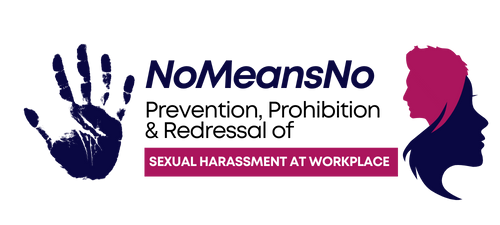
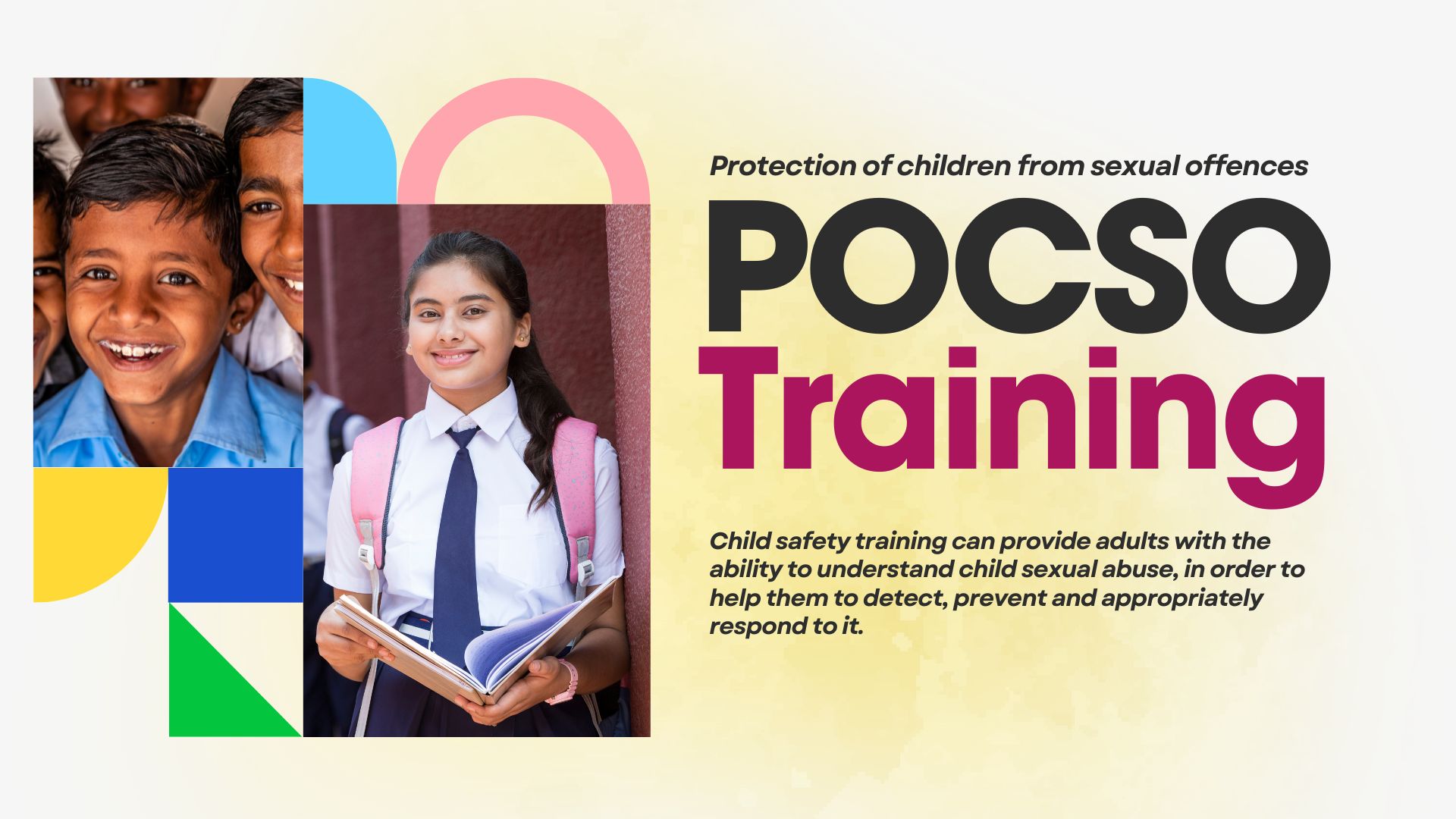
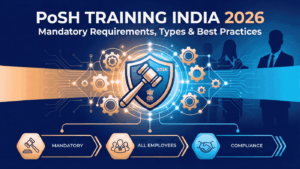
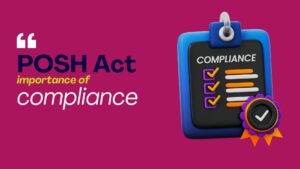
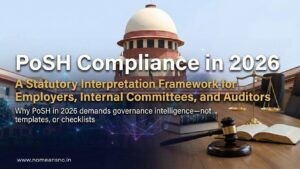
One Comment
Bahut hi gyan vardhak post